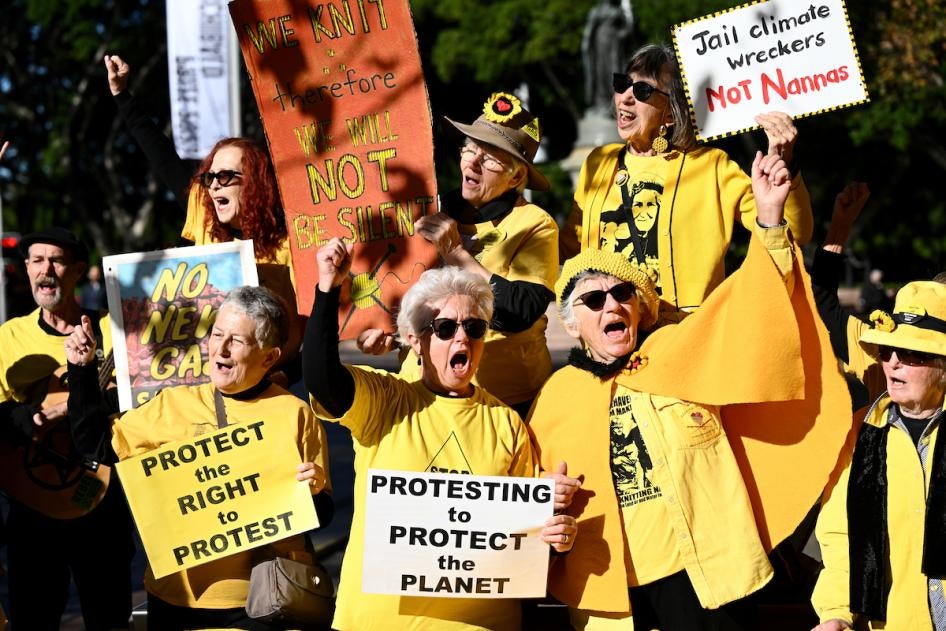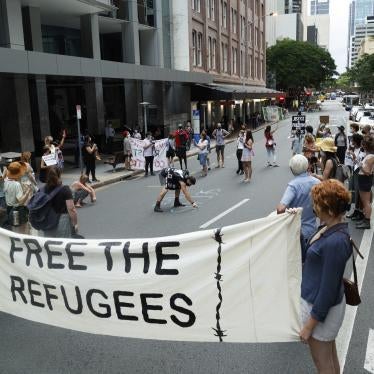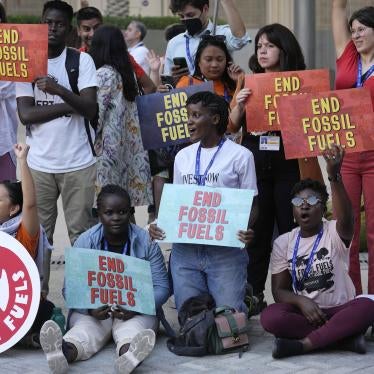In a victory for Australian climate protesters, the New South Wales (NSW) Supreme Court this week overturned sections of the state’s anti-protest laws.
In the December 13 decision, Justice Michael Walton found that parts of the legislation rushed through the NSW parliament in 2022 to crack down on protesters was unconstitutional and had a “chilling effect on political communication via protests and public assemblies.”
The legal challenge was launched by two members of the “Knitting Nanas” climate protest group, Helen Kvelde and Dominque Jacobs, who argued the laws were unconstitutional because they undermined “freedom of political communication” in NSW.
The NSW government introduced the laws following climate protests which disrupted Sydney’s Port Botany. They threatened to impose AUS$22,000 in fines and jail time of up to two years for anyone who caused “damage or disruption” to a major facility. Human Rights Watch previously interviewed three climate activists who had been targeted following the introduction of the laws and found the state was disproportionately punishing climate protesters, in violation of their basic rights to peaceful protest.
Jacobs said she was scared that under the laws, she could be arrested for simply attending a protest near a major facility such as a train station.
With Australia facing an onslaught of record-breaking temperatures, floods, and bushfires in recent years, climate protests increased. However, state governments have made significant efforts to curtail protest activity.
Earlier this year, the South Australian government increased penalties for people who engage in conduct that “intentionally obstructs the free passage of a public place.” The change in laws increased the penalty from a maximum fine of $750 to fines of up to $50,000 or three months in jail.
The South Australian legislation was prompted by protest actions from the Extinction Rebellion activist group to disrupt an oil and gas conference. Among those arrested was a woman who abseiled from a bridge and disrupted traffic.
International law recognizes peaceful protest as a basic human right. Government responses against protesters who violate the law must be proportionate and directed toward meeting a lawful governmental aim.
Australian state governments should heed the NSW court’s ruling this week and refrain from pushing overbroad laws curtailing peaceful protest.










